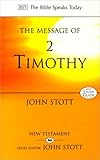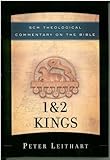In the second section of Psalm 119 (Ps 119:9-16, or “Beth”), I want to focus in on two concepts that recur throughout this Psalm, and that is of the value of memorising and meditating on the Word of God. I think there is an important link between the two. In our modern age of Google, we tend to assume that there is little to no point in memorising anything, since we can look it up quick enough. But I am convinced that we will get much more benefit from God’s Word if it stays with us in our minds throughout the day, allowing us to ponder its meaning as we walk down the street, or remember a relevant passage as we face a difficult situation. If you want to meditate on God’s word, you need to do at least a small amount of memorising God’s word.
I should point out that I am not talking primarily about the kind of memorising that enables you to recite verbatim entire chapters or books of the Bible, valuable as that may be. Instead, my goal is to have a thorough working knowledge of what is in God’s word – to know the general content of each book, to know the key and most important passages, even if I can’t quote chapter and verse for each one. When the Psalmist says “I have hidden your word in my heart”, he means that it has gone deep down within him. It’s not just in his head, it’s got right inside him, and is shaping his entire way of life.
Why Memorise?
This passage gives at least two reasons you should memorise Scripture. First, the word of God is for all of life. Life is portrayed here as a journey, and the decisions we face are forks in the road. How can we remain on the “path of purity” (Ps 119:9), and avoid “straying” from the right way (Ps 119:10)? Most of the important decisions we make in life are not taken while we are in a church meeting, or even necessarily while we have our Bibles open in front of us. We need the word of God to have taken deep root within us, if the choices we make in our day to day lives are to be governed by the wisdom of God’s word.
Second, the word of God is a weapon in the fight against sin. Verses 9 and 11 state this clearly – those who know the word of God will be able to wield the sword of the Spirit against the attacks of the enemy. The greatest example of this is of course Jesus. In his wilderness temptation, again and again he turned to the Scriptures to fend off the devil. And he didn’t have his iPhone with the ESV app on it to help him. He could turn to the word of God for help because it was already in his heart.
How to Memorise
Most of us are resigned to the idea that we are terrible at memorising Scripture. But its not as hard as you might imagine. This passage gives us two powerful ways in which God’s word penetrate deep into your heart.
The first, and most important is that you need to delight in God’s word in order to be able memorise it. As a teenager I could tell you the full squads of all the Premier League teams, as well as recite every Arsenal result of the season complete with who scored what goal in what minute. It wasn’t because I tried to memorise that information, it’s just that I was so passionate about football that I absorbed vast amounts of useless trivia. The writer of this Psalm is so obsessive about the word of God that he compares the thrill he gets from it to winning the lottery:
14 I rejoice in following your statutes
as one rejoices in great riches.
15 I meditate on your precepts
and consider your ways.
16 I delight in your decrees;
I will not neglect your word.
The more we delight in God’s word, the more of it we will retain and will be able to bring it to mind as the need arises.
A second and very effective way to memorise the word of God is simply to speak it out.
13 With my lips I recount
all the laws that come from your mouth.
With two of my children I read out loud a Psalm each night before they go to bed. They repeat it back to me line by line. It takes a couple of minutes. By the end of the month, my eight year old can recite it word for word, while my five year old can get through with a few prompts. There is something about speaking things out loud that causes it to stick in our minds.
I am told that reading aloud was the normal mode of reading for centuries. Rev 1:3 says “Blessed is the one who reads aloud the words of this prophecy”. Try doing your morning Bible readings aloud. It will slow you down and you’ll cover less ground, but you will retain more that way.
Another aspect of speaking God’s word out is making it a regular topic of conversation. The more you talk about it, the more deeply you will examine it, and passages of Scripture you discuss with others are more likely to take root in your heart. That’s one good reason why small groups should try to include discussion within their Bible study meetings. As Deut 6:6-7 says:
6 These commandments that I give you today are to be on your hearts. 7 Impress them on your children. Talk about them when you sit at home and when you walk along the road, when you lie down and when you get up.





